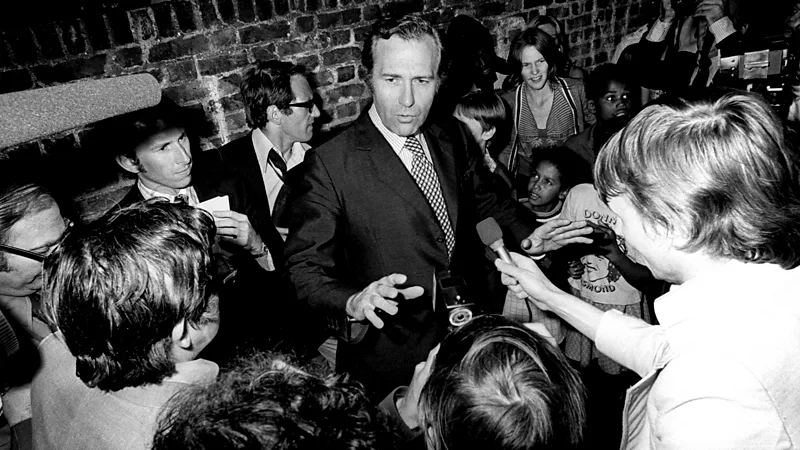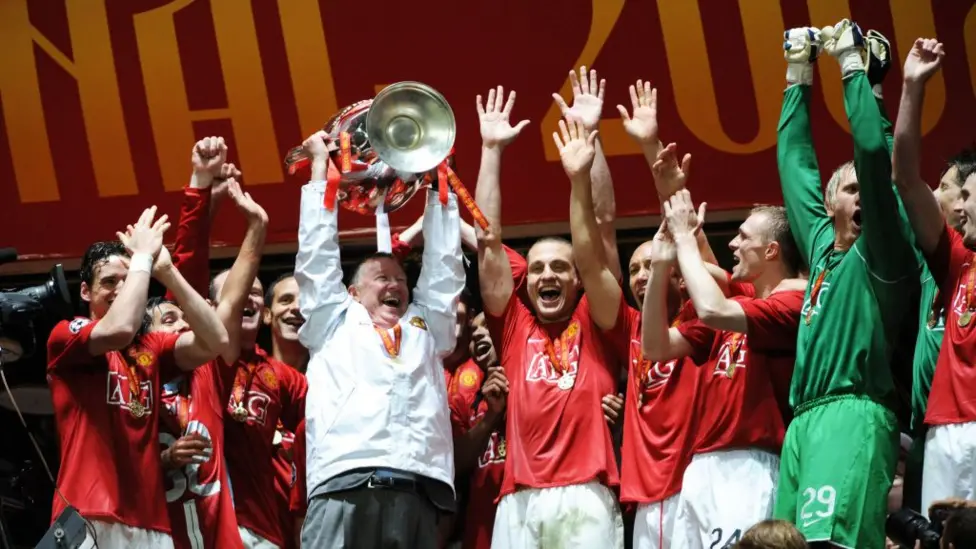Politics
Historical Lies and Modern Deceptions: A Continual Struggle for Truth”
- Historical Lies and Modern Deceptions: A Continual Struggle for Truth”
By Imran Ali Khan
Social media is like a “blind man’s foot on a partridge.” In recent days, PTI’s official pages and its supporters have been actively promoting a statement attributed to PPP leader Qamar Zaman Kaira. This statement is supposedly based on a conversation between Kaira and the army chief. A post attributed to Hamid Mir claims, “The watchman is being made a scapegoat in the alleged assault on a student at Punjab College; an important figure is actually responsible.” Another post allegedly from former U.S. President Trump urges, “My Pakistani friend Imran Khan’s life is in danger; step out to save him.” Additionally, a post linked to Raoof Klasra suggests that Imran Khan is being tortured under the supervision of a colonel in jail.
A significant number of people on social media have shared these posts. Notably, the individuals named in these post Hamid Mir, Qamar Zaman Kaira, and Rauf Klasra have denied their association with them.
News about an alleged assault at Punjab College’s Gulberg Girls Campus spread like wildfire, leading to protests in Lahore, Gujrat, and Rawalpindi, some of which turned violent. Initially, rumors circulated that three watchmen were killed by students, but Gujrat police later confirmed the death of a watchman due to student violence.
In one viral video on social media, protesting students are seen taking valuable items from their college, reminiscent of the style of Bangladeshi thieves. Another video shows not only students but also some outsiders engaging in vandalism.
A committee consisting of the Chief Secretary, IG Punjab, and Advocate General Punjab has compiled a report on the incident. According to this report, the alleged assault did not occur, and students were incited through organized fake news and videos. While this incident is telling, a viral video features a woman claiming to be the mother of the alleged victim, detailing the incident. Did the FIA, police, or the three-member committee record her statement? If not, why?
The Chief Justice of Lahore High Court has ordered the formation of a full bench regarding the alleged assault case. Should we expect the court to summon this woman claiming to be the victim’s mother to testify?
We believe the court should also call the student who appeared alongside Chief Minister Maryam Nawaz during her press conference, where she was abruptly silenced when she began to recount the facts. Questions arise about why her microphone was turned off when she was about to reveal the truth.
The preamble has been lengthy, but it was necessary as we discuss four other alleged rape cases that are currently under scrutiny. Those who firmly believe in the truth of these events rely solely on social media posts without any solid evidence. These are the same individuals who question why there was such a significant protest if the incident didn’t occur, why the police resorted to violence, and why arrests are happening.
Several disgraced YouTubers have also contributed to this narrative, some even chanting calls for revolution, particularly figures like Sabir Shakir, Major Raja Adil, and Shaheen Sahbai.
Now, let’s discuss why lies sell more than the truth in our society. Can we start this conversation by referencing Muslim history?
I have a straightforward answer: the history of Muslims, often incorrectly referred to as “Islamic history” in our context, has been cloaked in religious sanctity. Discussing it now feels risky, fearing someone might emerge from the shadows to issue a fatwa for heresy or blasphemy.
I once tasted the repercussions of such a fatwa during an event led by Bilawal Bhutto in my birthplace, thankfully accompanied by friends like Mir Ahmad Kamran Magsi. Otherwise, I would have faced dire consequences for my comments.
Allow me to digress briefly; if we start discussing the arrival of Muslims or Islam in the Indian subcontinent, it would also be intriguing.
For instance, when Hajjaj ibn Yusuf sought permission from the Caliph to invade Sindh, he cited that the ruler Raja Dahir had seized a ship en route to Sri Lanka, holding captive women who wrote to Hajjaj. Thus began the invasion of Sindh. Hajjaj inscribed the Quran, which remains unchanged after 1,300 years, but why didn’t the letters from the women survive?
The lie concocted to justify the invasion of Sindh has persisted for 1,300 years, and those who oppose it face ridicule, often labeled as descendants of Raja Dahir.
Similarly, labeling the rule of the Ghulam, Lodhi, and Mughal dynasties as Islamic regimes is another white lie. This falsehood continues to be propagated through our educational curriculum. The invasions by figures like Mahmud Ghaznavi are mischaracterized as Islamic campaigns. When Mahmud Ghaznavi invaded Multan, an Ismaili Muslim government was in power, and his forces committed massacres and looted, taking thousands of women and young men as slaves to Ghazni for sale.
Referring to the educational institution of Raja Parhalad as a temple of monotheism is yet another falsehood. The partition of the subcontinent occurred over fears that Hindu majorities would infringe on the rights of the Muslim minority. This claim was debunked in April 1947 by Muhammad Ali Jinnah during an interview with American journalists, where he warned, “America should remember that Pakistan, created by partition, will prove to be an ally against the godless Soviet Union.”
This interview exposes the true nature of the partition. The blame for the riots during partition lies with Hindus and Sikhs, another misleading narrative. The riots were initiated by Muslims, leading to the massacres of Hindus and Sikhs in places like Rawalpindi and Lahore’s Shah Alam Market.
For those interested in details about these matters, refer to the works of Husain Haqqani, Muhammad Hafeez Khan, and Kuldeep Nayar.
Among the many lies that have persisted in our political history are claims that the Jamaat-e-Islami participated ideologically in the formation of Pakistan, or that Khan Abdul Ghaffar Khan and his family were Indian agents, or that G.M. Syed was a traitor and an enemy of Islam. It’s also claimed that Bhutto’s original name was Ghasiram and that he wasn’t genuinely a Muslim.
Secularism is viewed as godlessness, and its advocates are believed not to trust sacred relationships.
Since the onset of the Zia regime, the creators of fifth-generation warriors have branded democracy and democratic systems with every available insult in the market. Those who perceive the two-party system as against the military establishment’s interests have cultivated a lie that they now must reap.
In short, lies have always been sold in our society with pride. There is much more to say on this topic, but that can wait for another time.
Politics
‘I have been deceiving you… I’m sorry about that’: The British politician who was caught faking his own death

When John Stonehouse’s clothes were found in a pile on Miami Beach on 20 November 1974, many people presumed that the UK Member of Parliament had drowned while swimming – until he turned up alive and well in Australia on Christmas Eve. In History looks at the stranger-than-fiction tale of the man who died twice.
When John Stonehouse hatched his plan to disappear completely, he was a troubled man. His political career had stalled, his dodgy business dealings left him facing financial ruin, he was accused of being a communist spy, and he was having an extra-marital affair with his secretary. In a move borrowed from the Frederick Forsyth novel, The Day of the Jackal, Stonehouse stole the identity of two dead men. He travelled on a business trip to Miami where he vanished, in November 1974, then hopped on another plane to Australia. The ruse lasted just over a month. It was British aristocrat Lord Lucan, another infamous fugitive who disappeared around the same time, who would inadvertently lead him to get caught in Australia.
And how did Stonehouse explain his actions? The British Member of Parliament insisted to the BBC in January 1975 that he was on “a fact-finding tour, not only in terms of geography but in terms of the inner self of a political animal”.
2:55
WATCH: ‘I was trying by disappearing to make their lives easier’.
To the British public in the late 1960s, he must have seemed like a man who had it all. Postmaster General at the age of 43, with a glamorous wife and three children, he was talked about as a future Labour prime minister. He was the man who oversaw the introduction of first- and second-class stamps, but for his political career, that role was as good as it got.
Politics
How Sir Alex Ferguson built his last great Manchester United side

The first takes place in the suffocating glare of the global spotlight – in Moscow’s Luzhniki Stadium in 2008.
Millions watch on television around the world, as a British manager ascends to icon status after a torrential downpour and that slip.
The second, three years earlier, and 3,000 miles away, takes place behind the locked dressing room doors of the Estadio do Benfica in Portugal.
John Terry’s miss in the 2008 Champions League final between Chelsea and Manchester United is the stuff of footballing folklore.
The narrative says the Chelsea talisman could have won the cup but messed it up.
Rio Ferdinand’s take on proceedings is a little different.
For the former Manchester United and England defender, the origins of victory in the Russian capital must be traced back to an entirely different moment of emotion.
Years earlier, in the dry heat of a Portuguese late evening, it was a young Cristiano Ronaldo who was left in floods of tears by the famed Sir Alex Ferguson hairdryer.
Politics
Greenland and the Panama Canal aren’t for sale. Why is Trump threatening to take them?

President-elect Donald Trump ran on a platform of isolating the US from foreign conflicts like the Ukraine war, increasing tariffs on foreign trade partners, and rebuilding domestic manufacturing.
But in recent days he has suggested a more outwardly aggressive approach for his foreign policy.
At first, he joked about Canada being an additional US state. Since, he has threatened to take back control of the Panama Canal. He also reiterated a desire from his first term to own the autonomous Danish territory of Greenland, which is not for sale.
The US is unlikely to take control of any of these regions. But these statements could indicate that Trump’s “America First” vision includes flexing the superpower’s muscle beyond its borders for US trade and national security interests.
On Sunday, Trump told a conservative conference in Arizona that Panama was charging US ships “ridiculous, highly unfair” fees to use its namesake canal.
After taking charge of building the canal in the early 20th century, the US turned full control over to Panama in the 1970s via a treaty. But this week, Trump said that if the “rip off” did not stop, he would demand the canal be returned to the US – though he did not specify how.
Trump added he did not want the Panama Canal “falling into the wrong hands” and specifically cited China, which has significant interests in the waterway.
“There’s a real US national security interest… in controlling its neutrality,” Will Freeman, a fellow on Latin American studies at the Council on Foreign Relations, said of Trump’s remarks.
“Trump’s statement is mostly about that.”
China is the second-largest user of the Panama Canal after the US, according to data. It has major economic investments in the country as well.
In 2017, Panama cut diplomatic ties with Taiwan and recognised it as part of China, a major win for Beijing.
The Panama Canal is not only essential for US trade in the Pacific, Mr Freeman said – in the event of any military conflict with China, it would be needed to move US ships and other assets.
He also noted Trump’s frequent comments about trade partners’ unfair treatment of the US, as well as the president-elect’s pledge to sharply increase tariffs on foreign goods, particularly those from China.
Trump’s complaints about shipping fees seemed to reflect his views on trade, Mr Freeman said.
While the statements might be “coercive”, said Mr Freeman, it remained to be seen “whether canal authorities lower fees on US cargo in response to the threat”.
Panama’s President José Raúl Mulino has released a statement saying that the canal and the surrounding area belonged to his country – and would remain so.
-

 Entertainment4 months ago
Entertainment4 months agoEarthquake scientists are learning warning signs of ‘The Big One.’ When should they tell the public?
-

 International4 months ago
International4 months agoTarar accuses Imran Khan of conspiring with Faiz Hameed to destabilise Pakistan
-

 International2 months ago
International2 months agoPTI Announces Not to Boycott New Committees
-

 Business3 months ago
Business3 months agoMajor Corruption Scandal Uncovered at WASA Multan: Rs1.5 Billion Embezzlement Exposed
-

 Business4 months ago
Business4 months agoThe Impact of QR Codes on Traditional Advertising
-

 Business4 months ago
Business4 months agoThe Benefits and Problems of International Trade in the Context of Global Crisis
-

 Business4 months ago
Business4 months agoFraud by Pakistani Firm Sparks Outrage in Business Community; Concerns Rise Over International Investment
-

 Business2 months ago
Business2 months agoHigh Court Blocks MDCAT Merit List Amid Controversy Over Exam Error






